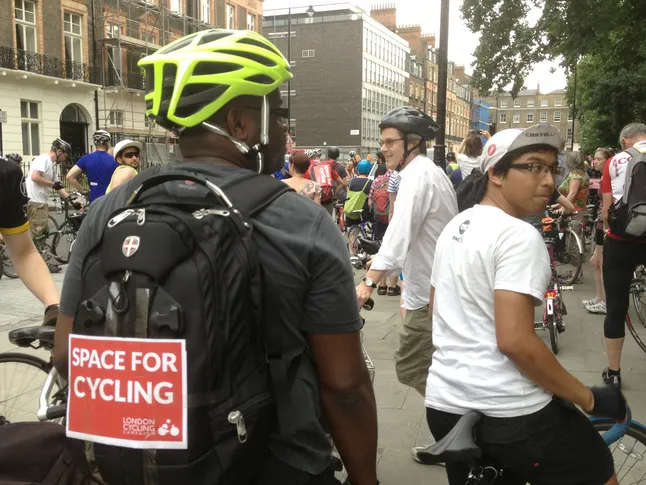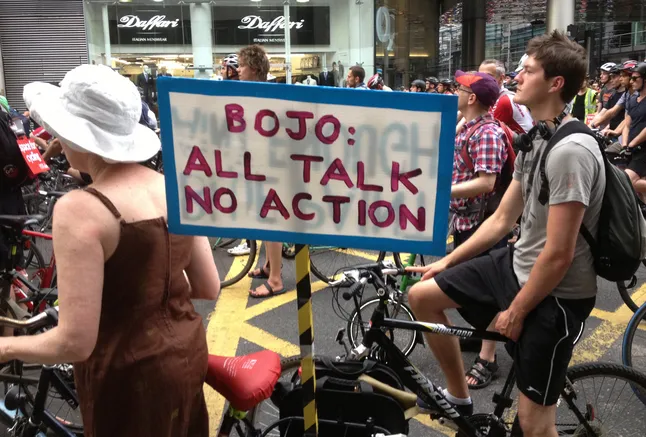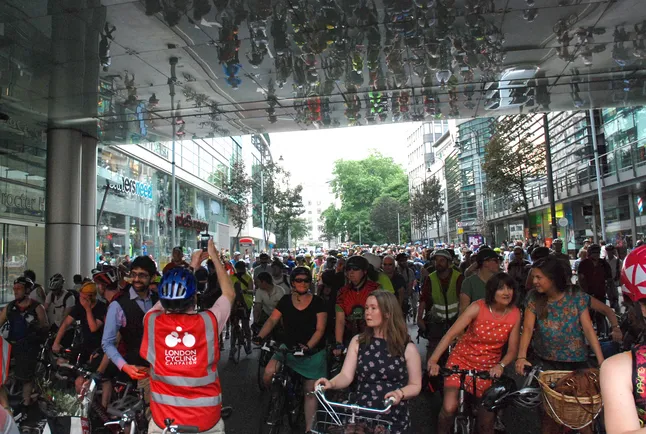More than 2,000 Londoners took part in last night’s protest to demand safer cycling in the UK capital, after the deaths of three riders in three weeks. The protest was organised by the London Cycling Campaign and included a vigil at the scene of Monday’s fatality in High Holborn.
On Monday, 54-year-old Alan Neve was killed in central London in a collision with a lorry. On 5 July, French student Philippine de Gerin-Ricard died after an accident in Aldgate, and on 24 June 41-year-old Paul Hutcheson was killed in Lewisham.
Mike Cavenett, spokesman for the LCC, said the latest deaths were avoidable and accused city mayor Boris Johnson of dragging his feet on making necessary safety improvements to junctions and streets.
Cavenett said: “Over 60 people have died on London’s streets since he came to power – it’s not good enough. This is why people are coming out on the streets in their thousands – because they’re not seeing the change on the ground.”
He said the mayor’s promises for safer cycling – encapsulated in the Vision for Cycling manifesto published in March – are welcome but that there has been little practical action.
“His vision for cycling is very good, but what cyclists, what Londoners, are saying is, 'Where is it?' Very little on the ground has changed in five years. It’s all very good producing documents and making commitments, but very little has changed and people are dying. We need a timetable from the mayor for when he’s going to put in place his promise.”

London cyclists want more space on the city’s roads
Cavenett rejected the suggestion that improving cycling infrastructure takes a long time. “London is being rebuilt all the time, and there are junctions which are being looked at. The problem is, over the last few years, whenever they’ve been done they haven’t been done up to standard.”
Yesterday, London’s cycling commissioner, Andrew Gilligan, said developing safer roads and junctions does take time but that the capital’s network of largely segregated cycle lanes – the so-called Cycle Superhighways – will be improved by the end of 2016.
He told ITV’s London Tonight: “We’re doing absolutely everything they [cycling campaign groups] want us to do, the only difference between us is timing. They want us to do it instantly, they want it overnight and we say that’s just not possible – these things take time.
“We promised in our cycling vision in March every one of the Cycle Superhighways would be upgraded to be made safer in the next two and a half years, and we promised the most dangerous junctions would be made safer over the next three years.”

